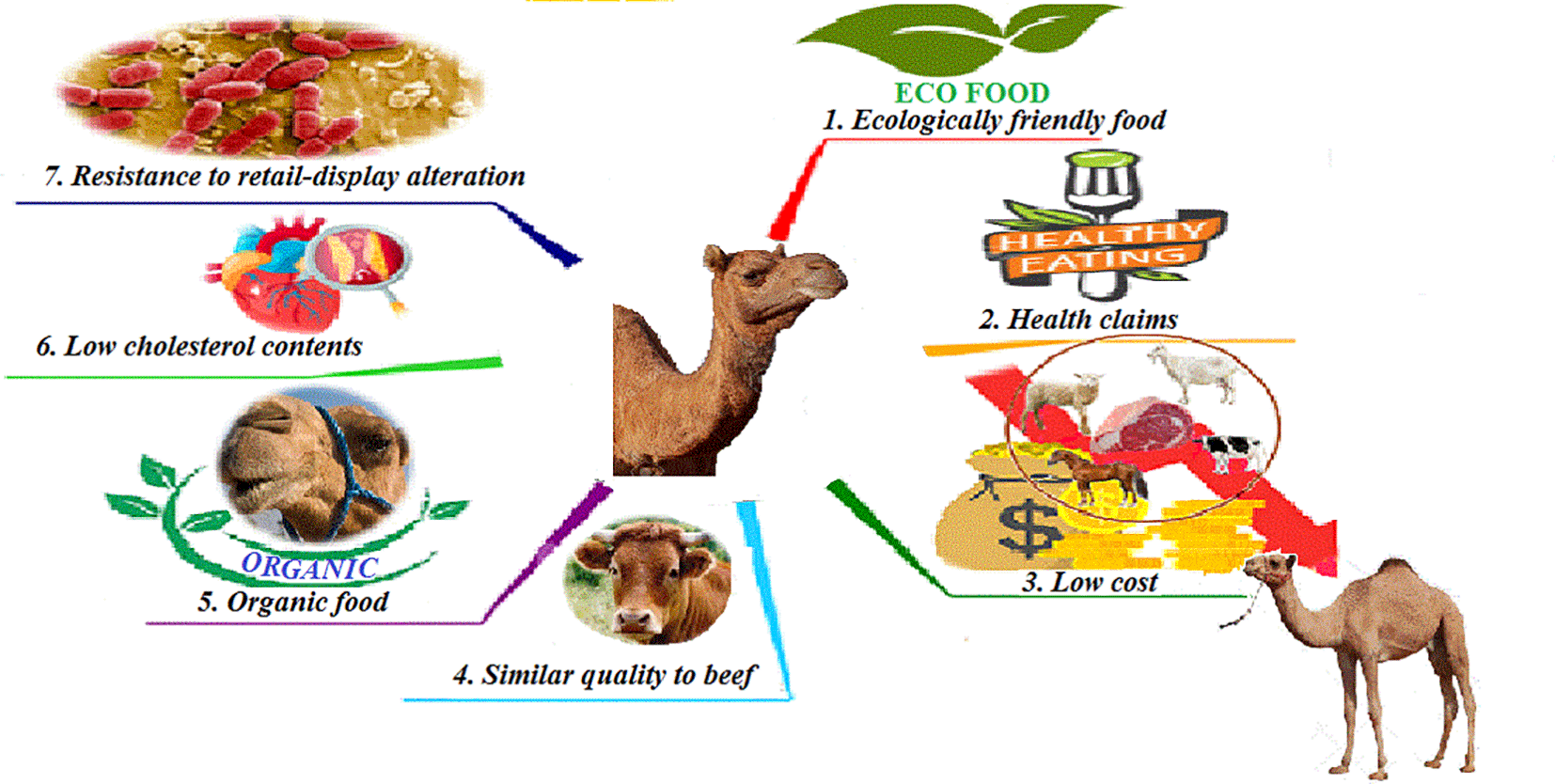Camel Meat: A Versatile and Healthful Culinary Delight...!!!
Camel meat is a nutritious and culturally significant food that offers numerous health benefits. Its versatility in cooking allows it to be enjoyed in various dishes, from grilled kebabs to hearty stews. As the world continues to explore diverse culinary traditions, camel meat stands out as a unique and valuable addition to the global diet.

Camel Meat and Its Uses
Camel meat, often overlooked in many parts of the world, is a staple in the diets of various cultures, especially in the Middle East, North Africa, and parts of Asia. Known for its distinctive flavor and nutritional benefits, camel meat has been consumed for centuries and remains an important part of culinary traditions in these regions. Here, we explore the uses of camel meat, its nutritional value, and how it is prepared and enjoyed in different cuisines.
Nutritional Value
Camel meat is a highly nutritious food source, rich in protein, vitamins, and minerals. While often compared to beef and lamb, it offers unique advantages:
-
High Protein Content: Camel meat is an excellent source of high-quality protein, essential for muscle growth, repair, and overall body function.
-
Low Fat: Camel meat is relatively low in fat compared to other red meats. The fat it does contain is mostly unsaturated, which is beneficial for heart health.
-
Rich in Vitamins and Minerals: It is a good source of vitamins B6 and B12, which are important for energy metabolism and red blood cell formation. It also contains essential minerals like iron, zinc, and phosphorus.
-
Low Cholesterol: Camel meat has lower cholesterol levels compared to beef and lamb, making it a healthier option for those concerned about cardiovascular health.
Culinary Uses
Camel meat is versatile and can be prepared in various ways, depending on regional culinary traditions. Some popular methods of preparing and consuming camel meat include:
-
Grilling: In many Middle Eastern countries, camel meat is marinated with spices and grilled over an open flame. This method enhances the meat's natural flavors and results in a tender, juicy dish.
-
Stewing: Camel meat is often used in stews and soups, where it is slow-cooked with vegetables and aromatic spices. This method helps tenderize the meat and infuse it with rich, savory flavors.
-
Roasting: Whole camel roasting is a traditional practice in some cultures, particularly for special occasions and celebrations. The meat is seasoned and roasted, resulting in a flavorful and tender dish.
-
Minced Meat: Camel meat is also used to make minced meat dishes, such as kebabs and meatballs. The minced meat is mixed with spices and herbs, then shaped and cooked to perfection.
-
Sausages: In some regions, camel meat is used to make sausages, combined with various spices and herbs to create a unique and flavorful product.
Cultural Significance
Camel meat holds cultural significance in many societies where camels are an integral part of life. In the Middle East and North Africa, camels are revered animals, and their meat is often considered a delicacy. Camel meat is frequently served during festivals, weddings, and other special occasions. It is also used as a traditional offering during religious ceremonies and rituals.
In addition to its culinary uses, camel meat has historical importance. Nomadic tribes and desert-dwelling communities have relied on camels for transportation, milk, and meat for centuries. The consumption of camel meat is deeply rooted in the traditions and lifestyles of these cultures.
Health Benefits
Apart from its nutritional value, camel meat offers several health benefits:
-
Weight Management: The low-fat content and high protein levels make camel meat a suitable option for those looking to manage their weight. Protein helps increase satiety, reducing overall calorie intake.
-
Iron-Rich: Camel meat is a good source of heme iron, which is easily absorbed by the body. This makes it beneficial for individuals with iron-deficiency anemia or those at risk of developing it.
-
Supports Muscle Growth: The high protein content supports muscle growth and repair, making it an excellent choice for athletes and individuals with an active lifestyle.
-
Heart Health: The low cholesterol and high unsaturated fat content can help improve heart health by reducing the risk of cardiovascular diseases.
Camel meat is a nutritious and culturally significant food that offers numerous health benefits. Its versatility in cooking allows it to be enjoyed in various dishes, from grilled kebabs to hearty stews. As the world continues to explore diverse culinary traditions, camel meat stands out as a unique and valuable addition to the global diet.
What's Your Reaction?

















